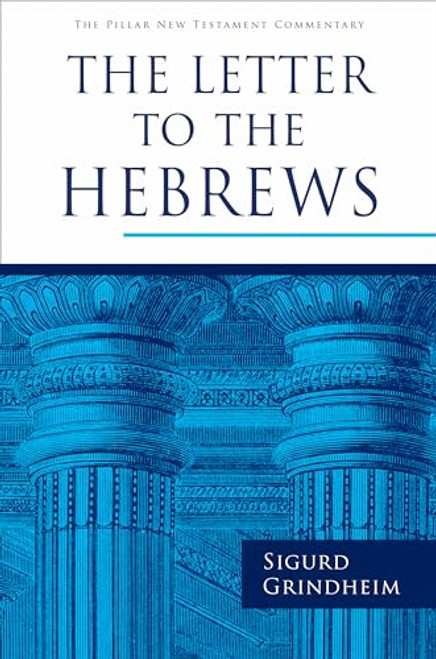W. H. Griffith Thomass timeless commentary on the Epistle to the Hebrews will help guide you into a consideration of the Bible text that is both scholarly and faith-fuelled; theological and pastoral. Griffith Thomas' original work is complete and unabridged in this edition, while the addition of study recommendations by Benedict J. Howard will assist those who wish to use this meaty material devotionally, either for personal or group study. About the Author: W. H. Griffith Thomas (1861-1924) was born in England near the Welsh border. He became a Christian in his teens and soon thereafter began studying at Christ Church College, Oxford for what would be a lifelong ministry. An Evangelical Anglican, Griffith Thomas was theologically conservative, deeply pastoral, and a gifted teacher. Over the course of his life he taught theology and pastored churches in England, Canada and the United States. The scripture-based works that he penned are an enduring legacy, and one that continues to nurture the spiritual formation of devout believers to this day. Quotes from "Hebrews: A Devotional Commentary": Revelation is the opposite of discovery, and it is God who has revealed Himself, not man who has discovered God. It must never be forgotten that salvation covers past, present, and future, and deals with the penalty, the power, and the presence of sin. The main if not the sole thought in Hebrews is salvation in its fullest aspect, as involving the believers complete redemption and full experience. Whenever we do not believe Gods Word, the inevitable result is that we doubt His power and love. Looking back over the past, we have been saved from the condemnation and guilt of sin; looking round upon the present, we are being saved from the power, love, and defilement of sin; looking forward to the future, we shall be saved from the very presence of sin in the glorified state above. We are so apt to associate the Christian life either with the past, or the future, that we often lose blessing and power through the forgetfulness of our present possibilities. While we are justified in relation to Christ solitarily and alone, we are sanctified in connection with other Christians, and we shall never know what it is to be a saint unless we make much of the communion of saints. Drawing back in the Christian life is sometimes due to disappointment, at other times to depression, at still others to discouragement, but always to distrust Thus the message is twofoldwe are to draw near and draw not back. There is no doubt as to the actual fact of the pleasures of sin, but behind these will always be found, however hidden away, the deceitfulness of sin. It is not difficult to put forth special exertion; the real test of life is the steady, normal progress of the soulnot paroxysms of effort but steady endurance.
Hebrews: A Devotional Commentary: with Notes for Reflection
MSRP:
Was:
Now:
$22.34 - $25.19
(You save
)
(No reviews yet)
Write a Review

Write a Review

Hebrews: A Devotional Commentary: with Notes for Reflection
- SKU:
- UPC:
- 9781990425059
- Maximum Purchase:
- 2 units
- Binding:
- Paperback
- Publication Date:
- 6/22/2021
- Author:
- Griffith Thomas, W. H.
- Language:
- English: Published; English: Original Language; English
- Pages:
- 233

NavPress
The Message Devotional Bible (Hardcover): Featuring Notes and Reflections from Eugene H. Peterson
MSRP:
Was:
Now:
$19.95 - $36.85

NavPress
The Message Devotional Bible (Softcover): Featuring Notes and Reflections from Eugene H. Peterson
MSRP:
Was:
Now:
$22.30 - $31.69

Kregel Publications
Hebrews: Verse-by-Verse: A Classic Evangelical Commentary
MSRP:
Was:
Now:
$25.22 - $29.65

Nighttime Devotional for Teen Boys: 5-Minute Devotions to Guide Daily Reflection
MSRP:
Was:
Now:
$12.46 - $17.79

Devotional for Teen Girls: A Year of Inspiration and Reflection
MSRP:
Was:
Now:
$11.49 - $25.19

NavPress
The Message Devotional Bible, Large Print (Leather-Look, Brown): Featuring Notes and Reflections from Eugene H. Peterson
MSRP:
Was:
Now:
$43.42 - $54.22

Holman Bible Publishers
Exalting Jesus in Hebrews (Christ-Centered Exposition Commentary)
MSRP:
Was:
Now:
$11.95 - $18.56

The Letter to the Hebrews (The Pillar New Testament Commentary (PNTC))
MSRP:
Was:
Now:
$58.09 - $68.75
!


